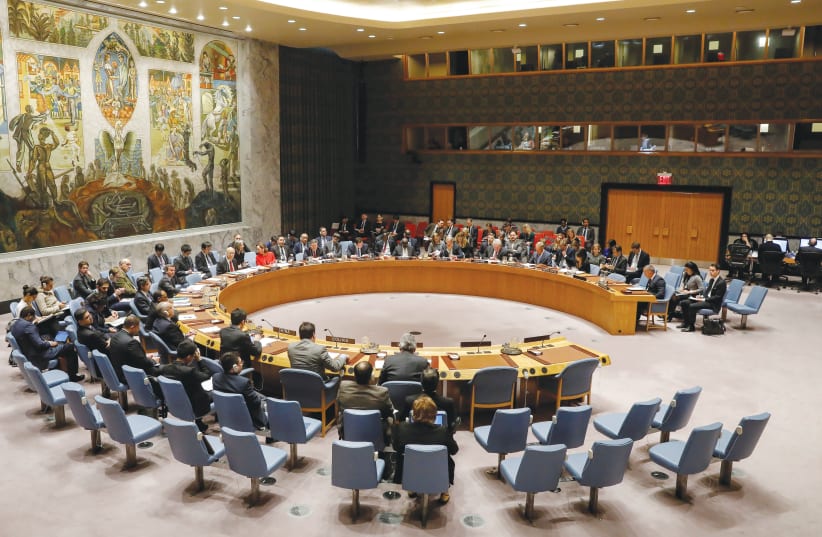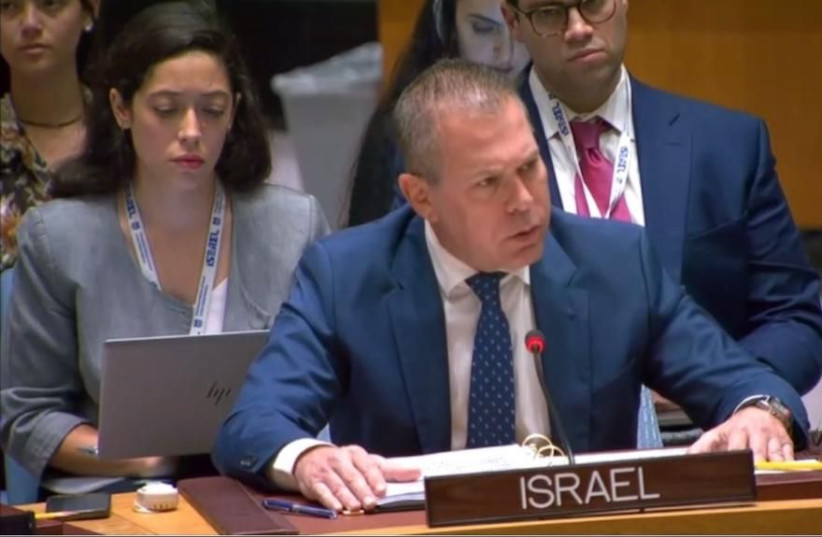Israel’s battle to thwart a French push at the United Nations Security Council to constrain the movements of a peacekeeping force on its northern border with Lebanon went down to the wire on Wednesday.
The 15-member Security Council had been expected to hold its annual vote to extend the mandate under which the peacekeepers – known as the UN Interim Force in Lebanon – operate.
At the last minute, the meeting, which was set for Wednesday, was delayed until Thursday. It was not clear whether a consensus could be reached among its members this week, even though UNIFIL’s mandate expires at midnight on Thursday.
It remains possible that the annual vote to extend the mandate will take place next week.
Ambassador to the UN Gilad Erdan on Wednesday said he was concerned that passage of France’s proposal “might damage severely UNIFIL’s ability to fulfill its mandate.”
“I hope that the member of the Security Council will not surrender to the pressure of the designated terrorist organization like Hezbollah, which wants to continue with its illegal military build-up [on Israel’s northern border], which is endangering the stability of the whole region, and might wreak havoc on Lebanon in the future,” he told The Jerusalem Post.
The United States, which holds the rotating UNSC presidency this month, has backed Israel’s position.
What is France's proposal for UNIFIL?
The latest draft proposal by France, which was seen by the Post, requires that UNIFIL coordinate its movement with the Lebanese government. Israel, which is not a UNSC member, has been actively working in New York to ensure that at least nine of the 15 members will reject that draft in favor of last year’s text, which empowered the 10,500-member UNIFIL force to operate independently.
Israel has long expressed its concern that UNIFIL lacks the necessary power to monitor Hezbollah’s arms build-up on its border. Israel is particularly concerned this year due to increased friction between the IDF and Hezbollah in the North. Some Israelis, including Erdan, in an interview with Army Radio, have said the friction on the northern border is reminiscent of the situation there prior to the outbreak of the Second Lebanon War in 2006.
Defense Minister Yoav Gallant was at UN headquarters in New York on Tuesday to underscore with officials there the growing danger of a violent outbreak between Israel and Hezbollah.
Erdan told the Post: “It is important to remember that recently – with the encouragement of Iran – Hezbollah increased its violations and audacity. They either miscalculated the situation in Israel, or they want to draw the attention away from Iran’s nuclear race.”
Hezbollah and its secretary-general, Hasan Nasrallah, “believe that they can do whatever they want,” he said.
“They are getting closer to our redline, and that is why it was so important to wage this diplomatic battle,” Erdan said, adding that the Security Council “cannot be allowed to degrade even more the capabilities of UNIFIL.”

